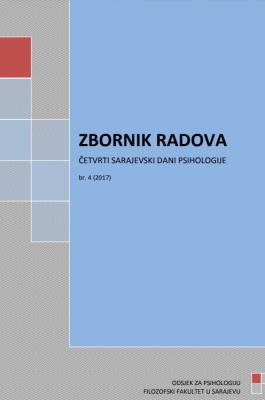Povezanost zdravstvenih ponašanja, zdravstvenog lokusa kontrole i optimizma kod studenata
The relationship between health behaviors, health locus of control and optimism in students
Author(s): Gorka Vuletić, Sanja BulogSubject(s): School education, Higher Education , Educational Psychology, Behaviorism, Health and medicine and law, Sociology of Education
Published by: Filozofski fakultet Univerziteta u Sarajevu
Keywords: health behavior; health locus of control; optimism;
Summary/Abstract: The study was conducted on 207 students of the University J. J. in Osijek, of which 69 were males and 138 females aged 19–26 years. The aim of this study was to examine the relationship between optimism, health locus of control and health behavior and to examine which are the most common health risk behaviors of students. The research included the use of the health locus of control questionnaire (ZLK-90) for testing beliefs on personal health and the factors that affect it in order to predict health behavior, the Revised Life Orientation Test (LOT-R) for measuring general optimism and a questionnaire for the assessment of health behaviors. The research results revealed that most respondents do not smoke and are engaged in physical activity several times a week. The smallest number of students stated they never consumed alcohol, and the largest number of them stated that it is consumed sparingly. There was a statistically significant positive correlation between the consumption of alcohol and cigarettes. Results of the study provide insight into the problem of the representation of certain health risk behaviors among young people and the association of those behaviors with some personality characteristics such as optimism. The practical implications of such research include the improvement of population health and the prevention of chronic diseases in the elderly.
Journal: SARAJEVSKI DANI PSIHOLOGIJE: ZBORNIK RADOVA
- Issue Year: 4/2017
- Issue No: 4
- Page Range: 94-103
- Page Count: 10
- Language: Croatian

